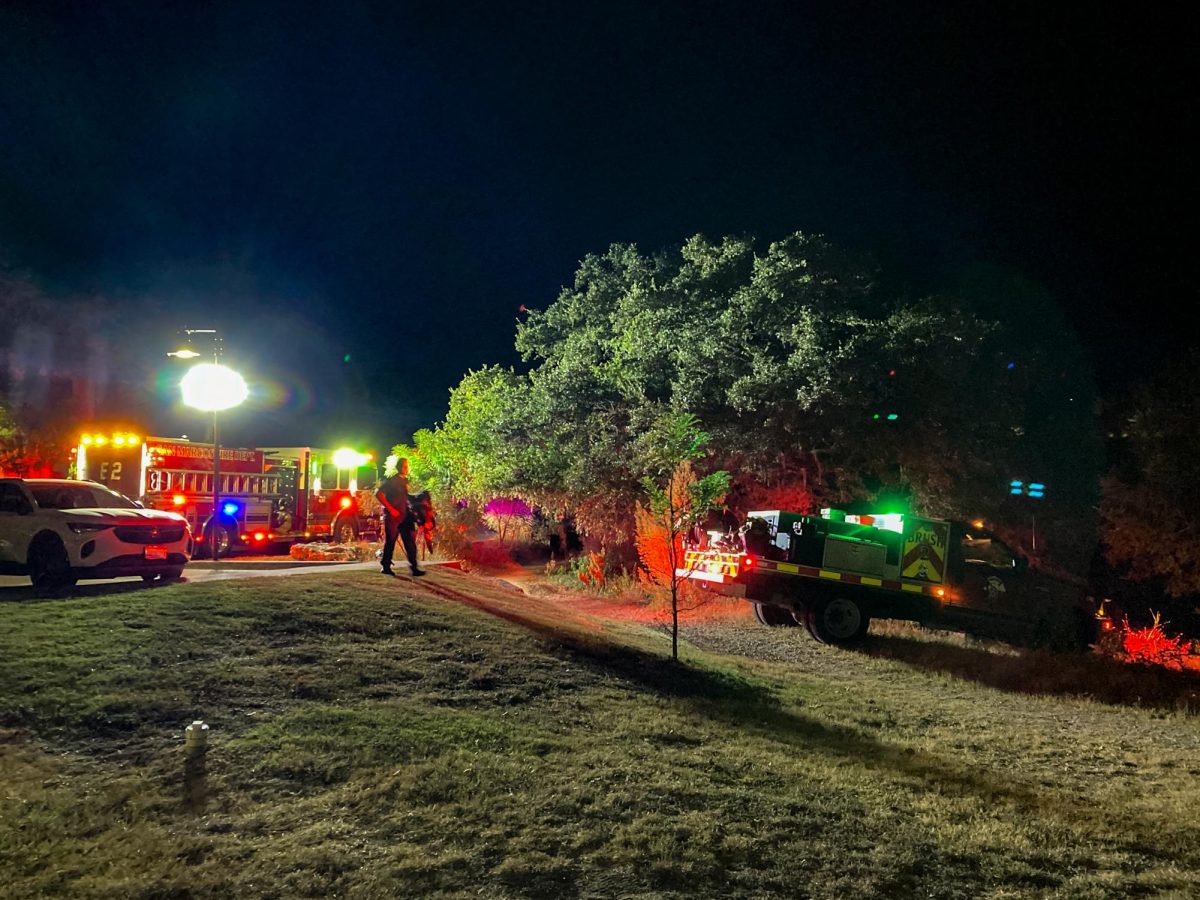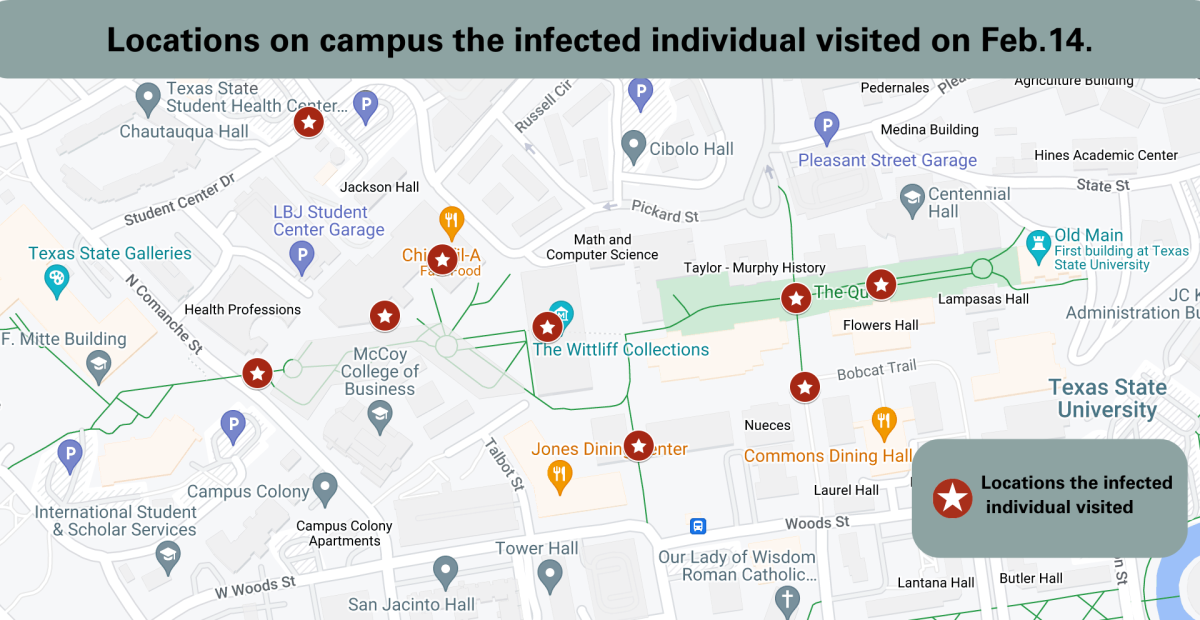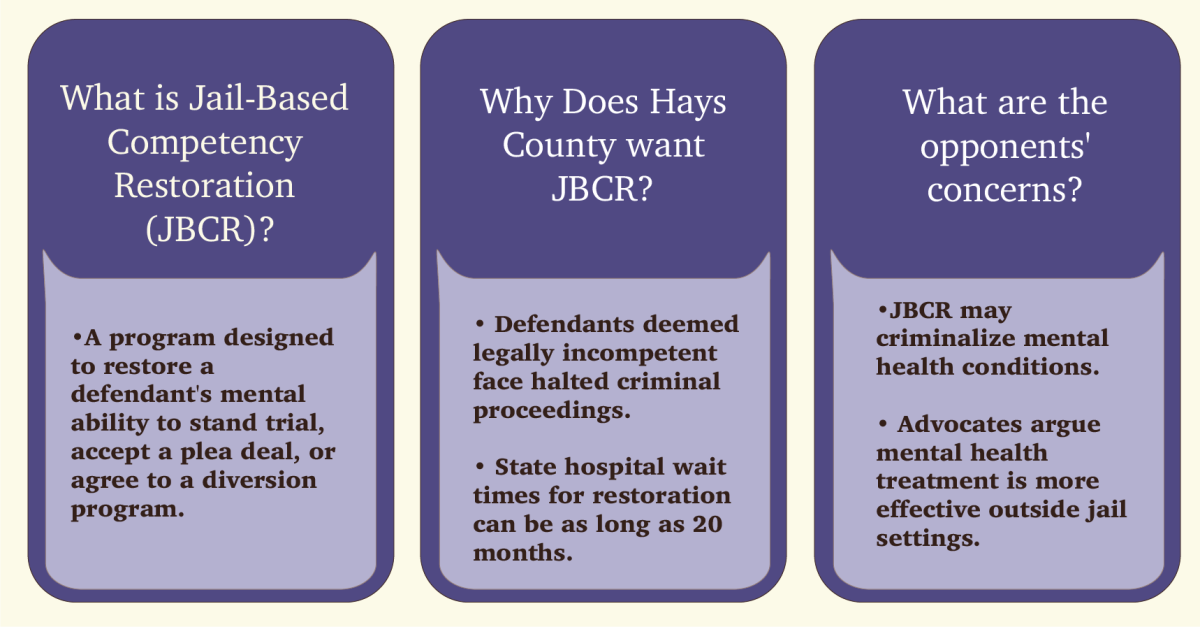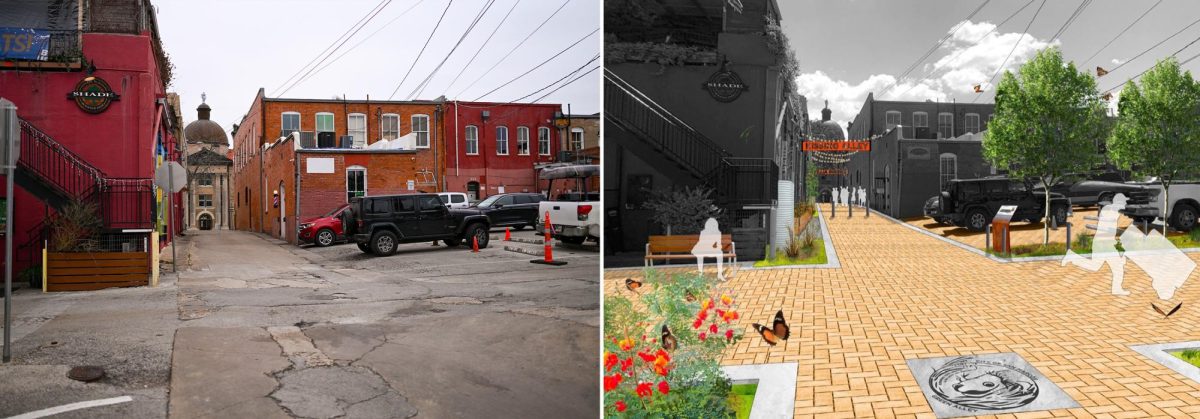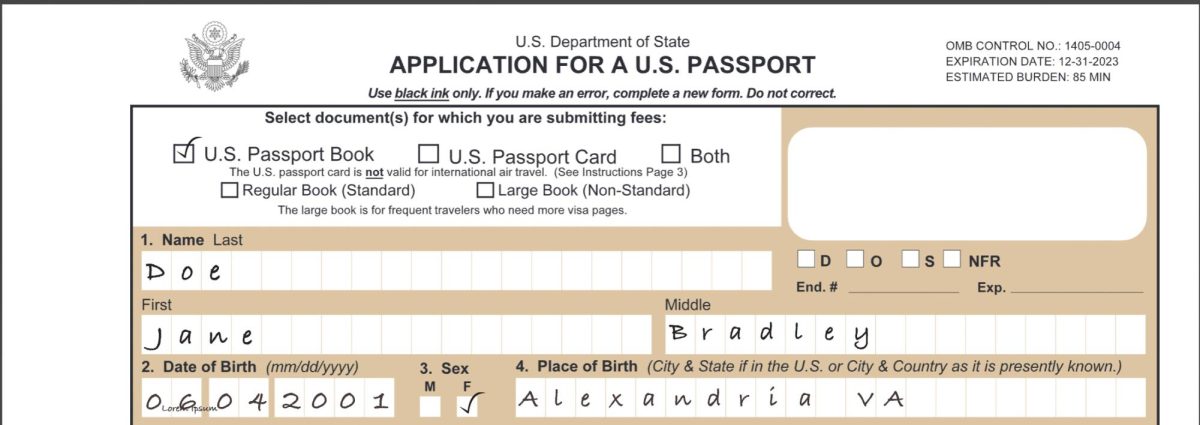Hays County released data showing the San Marcos Police Department’s low use of cite-and-release in 2018, spurring protests from local organizations advocating for criminal justice reform.
Under state law, cite-and-release allows peace officers to issue citations for class C misdemeanors—including some class A and class B misdemeanors—instead of making an arrest.
According to the data provided by Hays County criminal justice analyst Samantha Jones, only 20 of the 332 total cases eligible for cite-and-release in 2018 had individuals released with a citation. 72 cases eligible for cite-and-release involved a black individual, all of which were arrested instead of cited. This data reflects only 6% of eligible cases in 2018 proceeded with the cite-and-release option.
Mano Amiga, an organization aiming to “create a better world through education, advocacy and prudent policy for our penal system,” and Texas Rising were chief among the organizations present during the Sept. 17 protest at San Marcos City Hall.
The various groups implored the new Interim Police Chief Bob Klett to embrace cite-and-release and work toward the implementation of the Law Enforcement Assisted Diversion program.
Mano Amiga members introduced the concept for the protest following the release of cite-and-release data, incorporating Texas Rising and MOVE Texas in their efforts.
Jordan Buckley of Mano Amiga helped plan the subsequent protest in front of City Hall. He said the parallel-timing of the data release with the recent leadership changes in San Marcos was deliberate.
“We decided the city council’s consideration of a new police chief presented an ideal time to release the county report to show the public the degree to which our community is needlessly over-criminalized, and the racial disparity of who gets arrested instead of ticketed,” Buckley said.
Lexy Garcia, regional field coordinator for Texas Freedom Network and Texas Rising, attended the protest and said using cite-and-release should be seen as the bare minimum for SMPD.
“Cite-and-release should be seen as the floor,” Garcia said. “It should be utilized with any non-violent misdemeanors, including traffic violations, possession of marijuana under a certain amount and things like that.”
Garcia said a diverse community of citizens participated and advocated for cite-and-release, including those who were new to the issue.
“It was a really great showing of people, and not only those who are constantly plugged into these issues—who live for organizing and progressive reforms—but normal citizens,” Garcia said. “The combination of both the organizers and citizens was a huge part of our victory.”
After the protest and addressing city council, Klett said the department has new-found awareness of the issue and have seen improvement since.
“We are already seeing better numbers for cite-and-release this year,” Klett said. “We would like to say we had cite-and-release since 2007 in Texas, but it’s never really come up as a concern until recently.”
Buckley said Klett’s current interim status will work to give city council an opportunity to evaluate his performance before confirming him as SMPD police chief.
“(City council) will have the opportunity in a few months to assess his use of cite-and-release when deciding who to make our permanent police chief,” Buckley said. “We’re hopeful Klett will be the kind of chief we can get behind, but time will tell.”
Additionally, L.E.A.D, a diversion approach with the goal of improving public safety and order, was a major point of discussion during the protest and meetings.
The Texas State Texas Rising Chapter President Alexis Duran, consumer affairs junior, said L.E.A.D. aids the community with over-policing, particularly those with certain afflictions.
“We see too many cases in media of an officer escalating a situation with someone who may have mental health, drug addiction and homelessness issues,” Duran said. “It seems like they make no effort to deescalate and make the situation safer.”
When pressed for a position on L.E.A.D., Klett said it is being looked into.
“We are still looking at L.E.A.D. in Hays County and San Marcos and if it is the best decision going forward, then I am behind whatever is best for all of our citizens,” Klett said.
Responding to Klett, Council Member Mark Rockeymoore said it was important SMPD leadership remains attuned to the changes in the community of San Marcos while on the job.
“The community is getting browner; it’s becoming blacker and there are more people coming from diverse locations,” Rockeymoore said. “It is very important we heighten equity to something that we do enterprise-wide. I’m looking forward to working with you, and I hope to see you stand for the same principles as those who have concerns about the police department moving forward.”
A presentation scheduled for 3 p.m., Sept. 30, at City Hall will include L.E.A.D. National Support Bureau Director of Policing Strategies Brendan Cox, a retired chief of police of Albany, NY. Cox will discuss the program with law enforcement leaders and municipal officials.
An archived recording of the city council meeting and the meeting agenda are available on the City of San Marcos website.
Categories:
Concerns raised over cite-and-release data
September 29, 2019
Members of the San Marcos community stand outside the city hall discussion room with posters advocating for the practice of cite and release to be enforced for local law enforcement, Tuesday, Sept. 17, 2019, at San Marcos City Hall. [Photo by Rebecca Harrell]
0
Donate to The University Star
Your donation will support the student journalists of Texas State University. Your contribution will allow us to purchase equipment and cover our annual website hosting costs.
More to Discover


![Members of the San Marcos community stand outside the city hall discussion room with posters advocating for the practice of cite and release to be enforced for local law enforcement, Tuesday, Sept. 17, 2019, at San Marcos City Hall. [Photo by Rebecca Harrell]](https://universitystar.com/wp-content/uploads/2019/09/8c325d7a082bdb4adb260f5d81e99dbf-1-1200x963.jpg)



